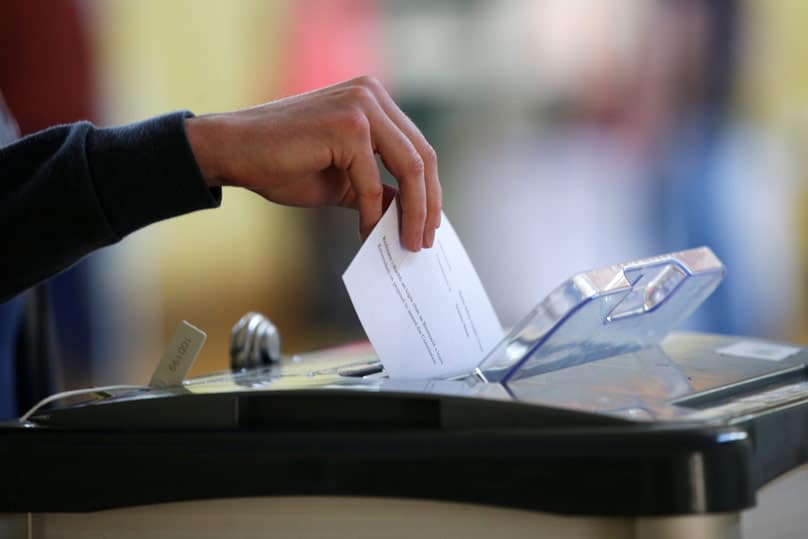
We are now within the final fortnight of the federal election campaign and postal votes are already starting to be returned, and so it is crunch time on voting.
One very important issue that often gets overlooked in federal election campaigns is that of euthanasia and assisted suicide, because it is considered to be a State issue.
However, news this past week has reminded us that the Commonwealth government also has a role to play and that there is a stark difference in the position of the two major parties.
By way of background, the Northern Territory became the first jurisdiction to legalise euthanasia in 1996.
The regime was only in place for about nine months before it was halted by Federal legislation that became known as the Andrews Bill, after Liberal MP Kevin Andrews.
“Labor’s territories spokesman, Jason Clare MP, has confirmed that an Albanese Labor government would facilitate the introduction, debate and vote on a bill to repeal the Andrews Bill, paving the way for the NT and the ACT to legislate for euthanasia.”
The Andrews Bill essentially prevented the Northern Territory and the Australian Capital Territory from making any laws that would allow euthanasia or assisted suicide to occur.
Without wanting to slip into legal nerdiness, the Federal parliament is able to do this because the constitution gives it power to make laws relating to the territories; it does not have the same power to override state-based euthanasia laws.
In the past 25 years, there have been numerous attempts to repeal the Andrews Bill and once again allow the territories to legislate for euthanasia, but they have all failed.
This is where the difference between the parties comes into play. Labor’s territories spokesman, Jason Clare MP, has confirmed that an Albanese Labor government would facilitate the introduction, debate and vote on a bill to repeal the Andrews Bill, paving the way for the NT and the ACT to legislate for euthanasia. Other Labor MPs have indicated this would be a “priority” of a new Labor government.
Any euthanasia or assisted suicide laws would still need to be passed by the respective territory parliaments.

The Territories both only have one house of parliament and are extraordinarily pro-death: the Northern Territory parliament recently voted unanimously in favour of abortion till birth, and the ACT pre-emptively held an inquiry into legalising euthanasia.
It is a fait accompli that if the Andrews bill is repealed, the country’s most extreme euthanasia and assisted suicide laws will be passed in the Territories faster than you can say “Philip Nitschke.”
The Coalition has made no such indication that it would back the debate over a repeal bill and, indeed, appeared to stifle debate of the bill tabled by Liberal Democrats Senator Sam McMahon just last year.
Put simply, a vote for Labor is a certain vote for euthanasia and assisted suicide in the Territories. While I wouldn’t go as far as to say a vote for the Coalition is a vote against the same, it is at least not a guarantee.
The differences between the major parties don’t end there. There is currently a federal law that makes it a crime to use a “carriage service” such as a telephone or internet connection to counsel, promote or provide instruction on suicide.
“We are again presented with a clear contrast: a Coalition government that has a position of keeping a blanket prohibition on providing counsel and advice on suicide over the phone or internet, and a Labor government-in-waiting that will consider making exceptions to the rule.”
While the law hasn’t yet been enforced in the states where euthanasia regimes are currently operative, if it were enforced, it would operate to prevent doctors from speaking to patients about euthanasia over the phone or on telehealth appointments.
Euthanasia advocates want this law amended to make it clear that it does not apply to assisted suicide, giving doctors comfort that they can conduct telehealth death calls without falling foul of federal laws.
Prime Minister Scott Morrison and Attorney-General Michaelia Cash have each said that the Coalition government has no intention to amend the law. The Labor camp have not committed to changing the law but have said they would at least look into it and obtain some legal advice.
We are again presented with a clear contrast: a Coalition government that has a position of keeping a blanket prohibition on providing counsel and advice on suicide over the phone or internet, and a Labor government-in-waiting that will consider making exceptions to the rule.
I know euthanasia is not the only issue at stake in this election, but it is one of the few where there is a well-defined difference between the two major parties vying for your vote. I think it’s important we all know that.
